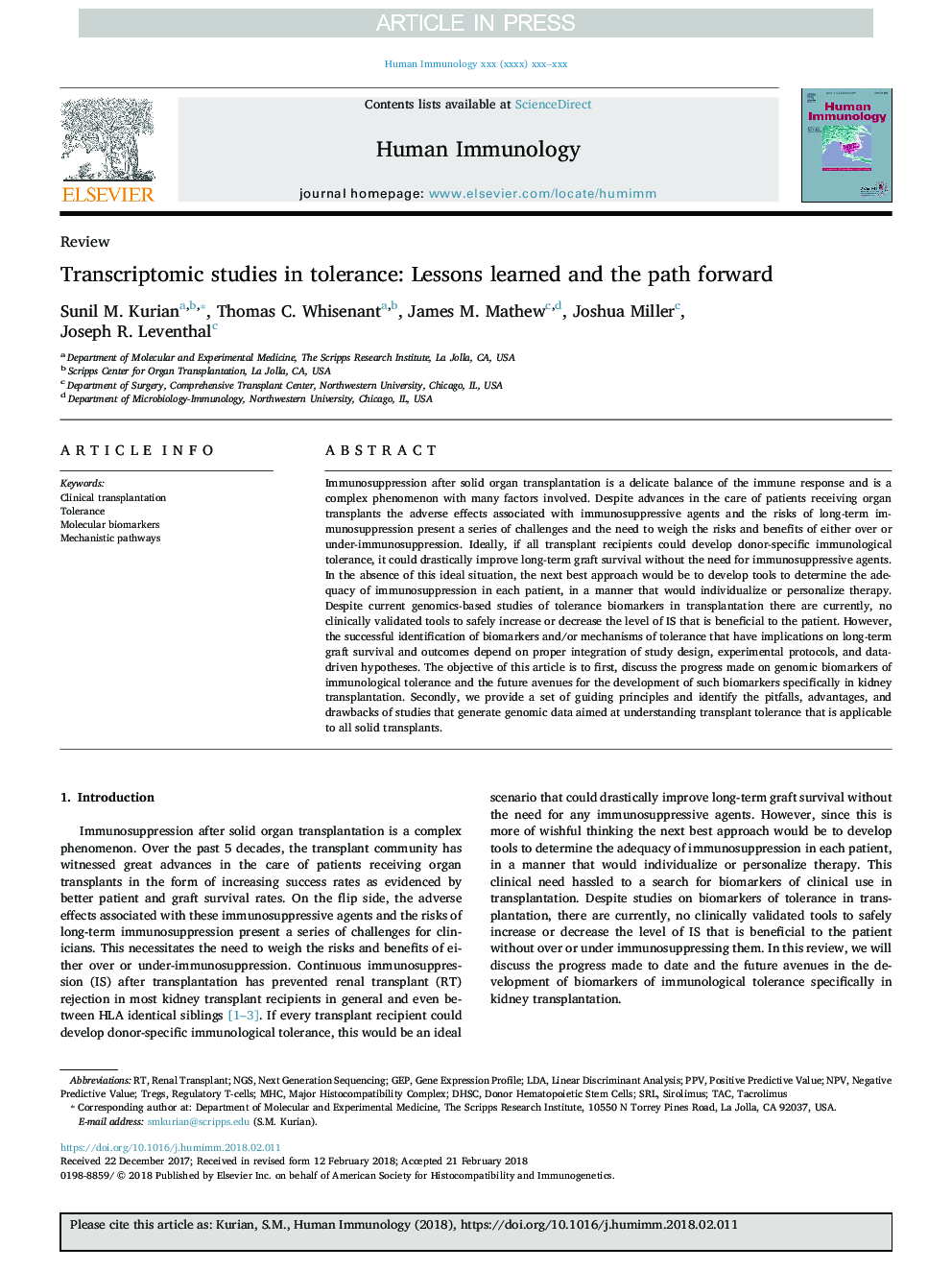| Article ID | Journal | Published Year | Pages | File Type |
|---|---|---|---|---|
| 8737642 | Human Immunology | 2018 | 7 Pages |
Abstract
Immunosuppression after solid organ transplantation is a delicate balance of the immune response and is a complex phenomenon with many factors involved. Despite advances in the care of patients receiving organ transplants the adverse effects associated with immunosuppressive agents and the risks of long-term immunosuppression present a series of challenges and the need to weigh the risks and benefits of either over or under-immunosuppression. Ideally, if all transplant recipients could develop donor-specific immunological tolerance, it could drastically improve long-term graft survival without the need for immunosuppressive agents. In the absence of this ideal situation, the next best approach would be to develop tools to determine the adequacy of immunosuppression in each patient, in a manner that would individualize or personalize therapy. Despite current genomics-based studies of tolerance biomarkers in transplantation there are currently, no clinically validated tools to safely increase or decrease the level of IS that is beneficial to the patient. However, the successful identification of biomarkers and/or mechanisms of tolerance that have implications on long-term graft survival and outcomes depend on proper integration of study design, experimental protocols, and data-driven hypotheses. The objective of this article is to first, discuss the progress made on genomic biomarkers of immunological tolerance and the future avenues for the development of such biomarkers specifically in kidney transplantation. Secondly, we provide a set of guiding principles and identify the pitfalls, advantages, and drawbacks of studies that generate genomic data aimed at understanding transplant tolerance that is applicable to all solid transplants.
Keywords
GEPSRLTregsNGSPPVTACDHSCregulatory T-cellspositive predictive valuenegative predictive valueMolecular biomarkersTacrolimusLinear discriminant analysisLDAToleranceNext generation sequencingSirolimusMHCmajor histocompatibility complexNPV یا negative predictive valueGene expression profileClinical transplantationRenal transplant
Related Topics
Life Sciences
Immunology and Microbiology
Immunology
Authors
Sunil M. Kurian, Thomas C. Whisenant, James M. Mathew, Joshua Miller, Joseph R. Leventhal,
